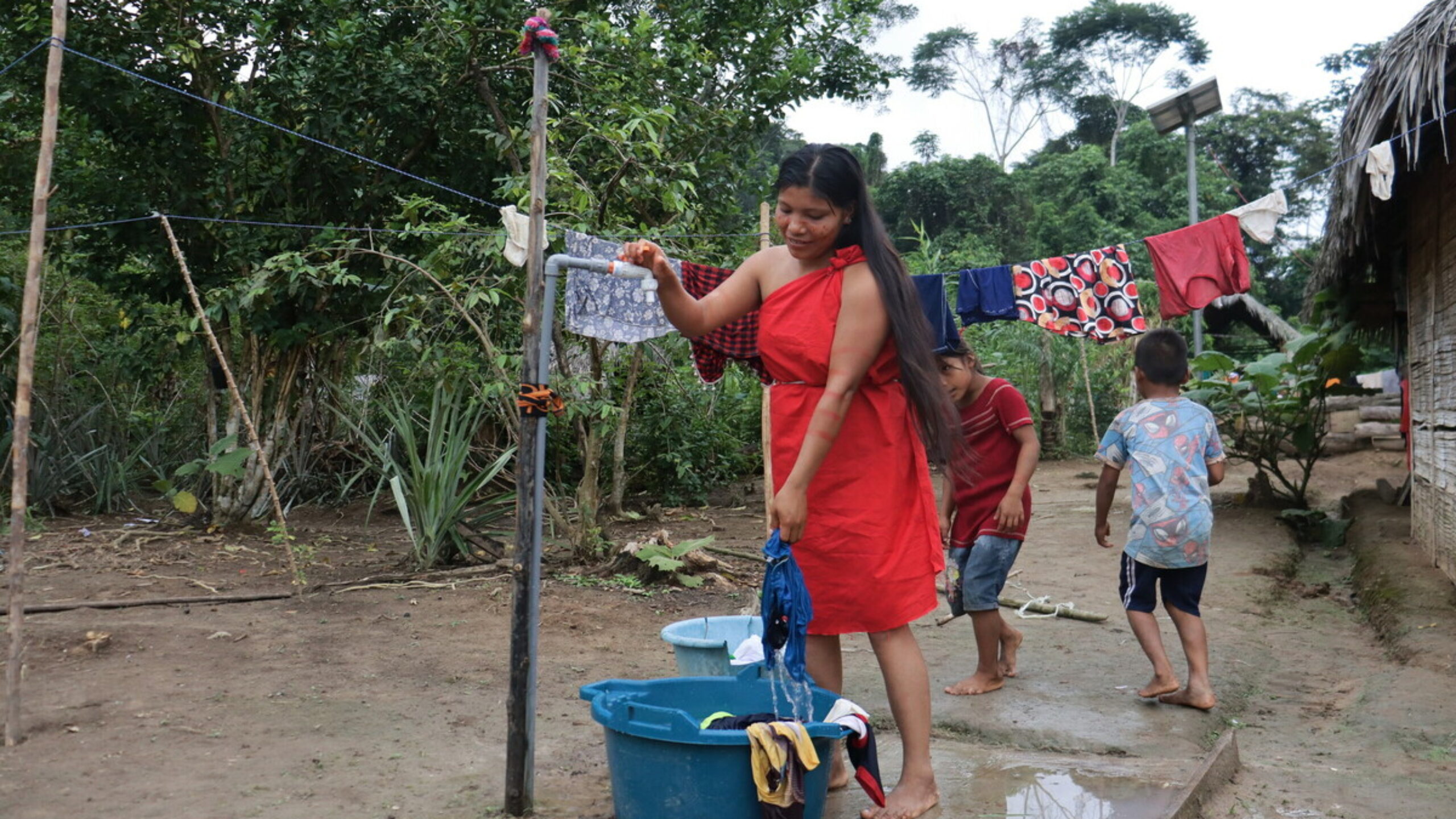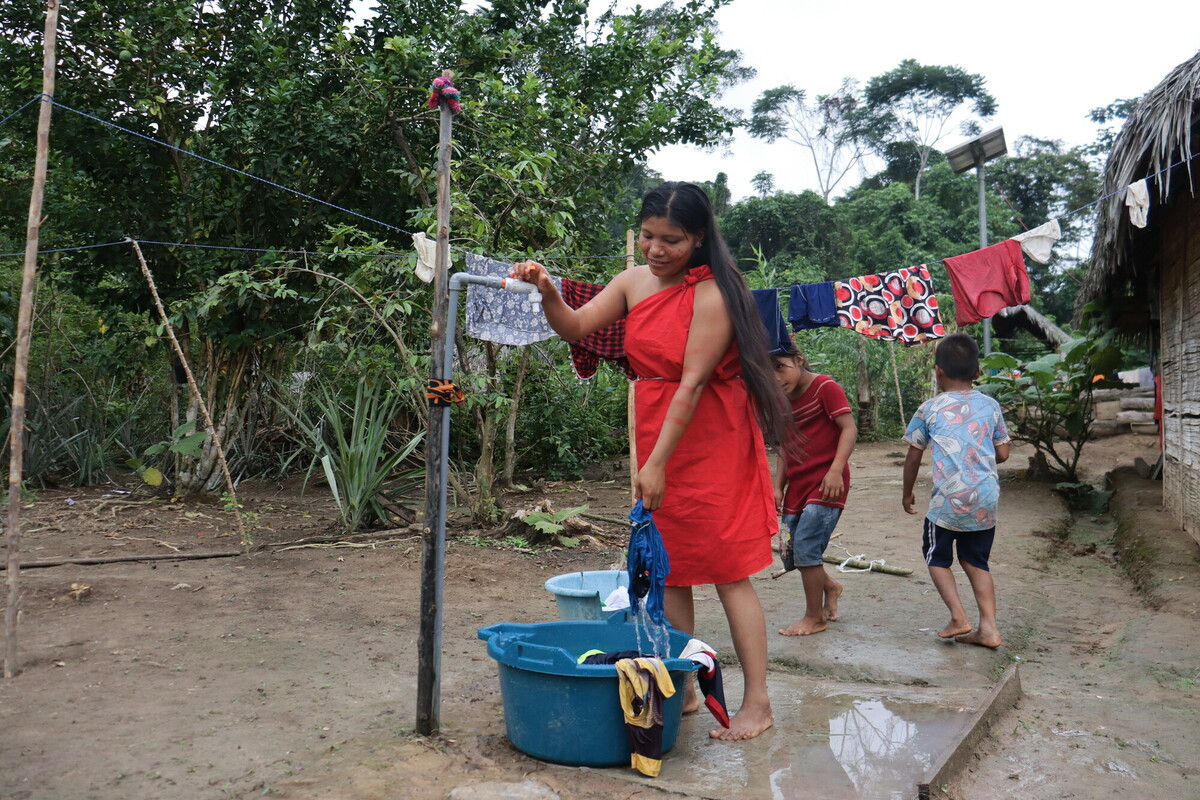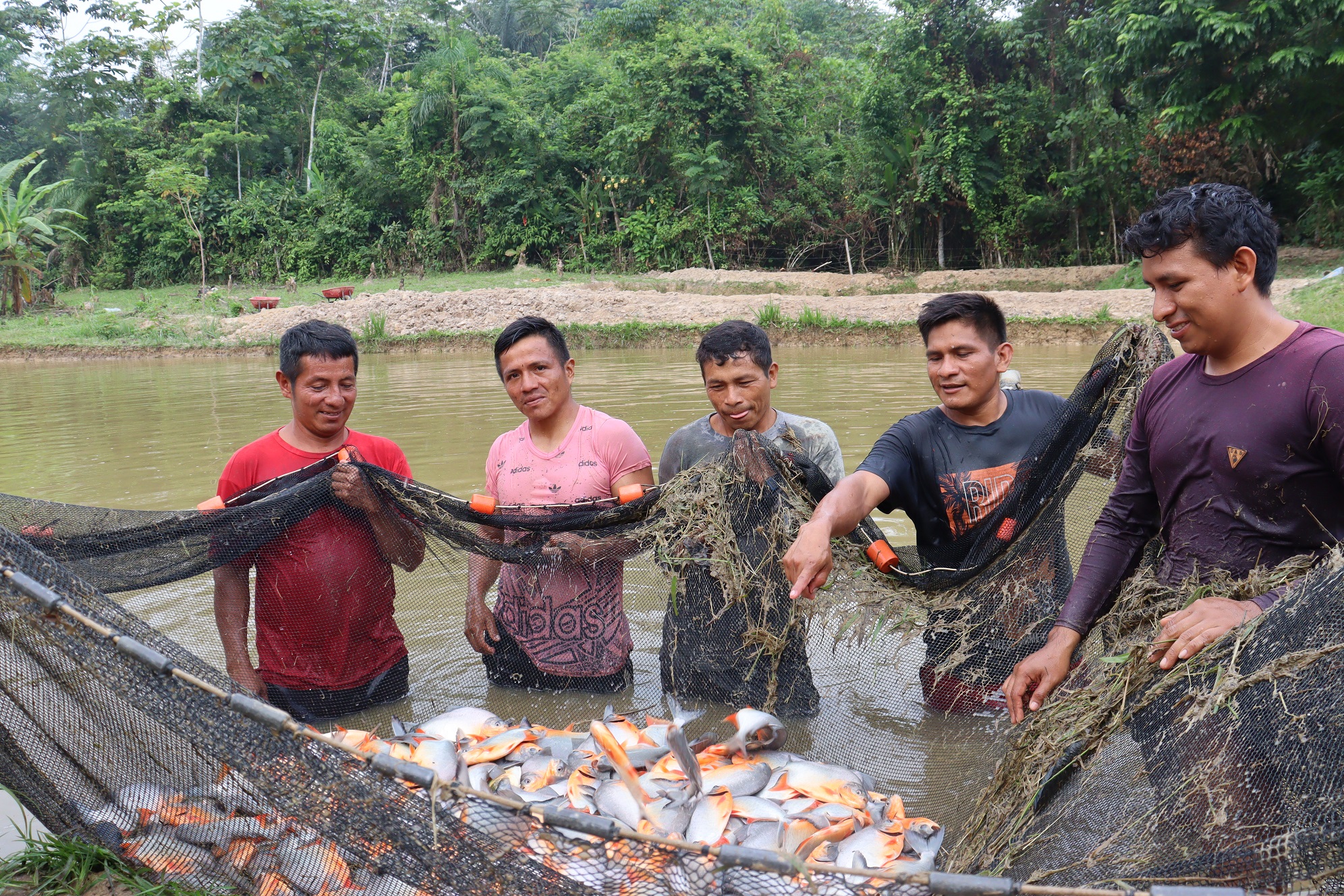
3 ways rainforest communities use cash
We’re often asked how people in the rainforest will spend the cash they donate.
The truth is, we don’t always know because no two people are alike. And, no two problems are the same.
What we do know is cash is the only type of support that truly enables people to make decisions based on the unique circumstances they face living in the rainforest and in a climate crisis. They are the experts on their own lives and needs.
Here’s how 3 rainforest communities have spent cash recently:

Access to clean water
In Peru, 5 out of 10 Indigenous people have limited access to running water and it means a long, treacherous journey to collect water each day. The Katish community decided to invest cash on a solution – water pipes that connect a clean water source deep in the rainforest directly to 26 family homes in the village.
Protecting the future of rainforests
The people of Sololo, a rainforest community In Papua New Guinea, used some of their cash to start a rainforest nursery, a place to grow native trees to help address forest loss in the area.
Food security and income generation
In Huaracayo, Peru, they faced malnutrition and anaemia due to a lack of income and access to food locally. They have used their cash to build the area’s first native fish farm. This project now provides over 100 families with enough fish and vital protein to meet their needs. They also sell the remaining fish to generate income.

No other type of support would be able to meet all these needs.
With over 16 years experience, we know that to keep rainforests standing we must support rainforest communities to be healthier, stronger and more resilient in the face of the climate crisis. To help protect their rights, culture, and territories.
And, cash works. Deforestation is up to 82% lower in Cool Earth partnerships, than in surrounding areas.
So, what’s next?
We’ve just made cash in the rainforest even simpler through our Basic Income pilot. Find out more here.